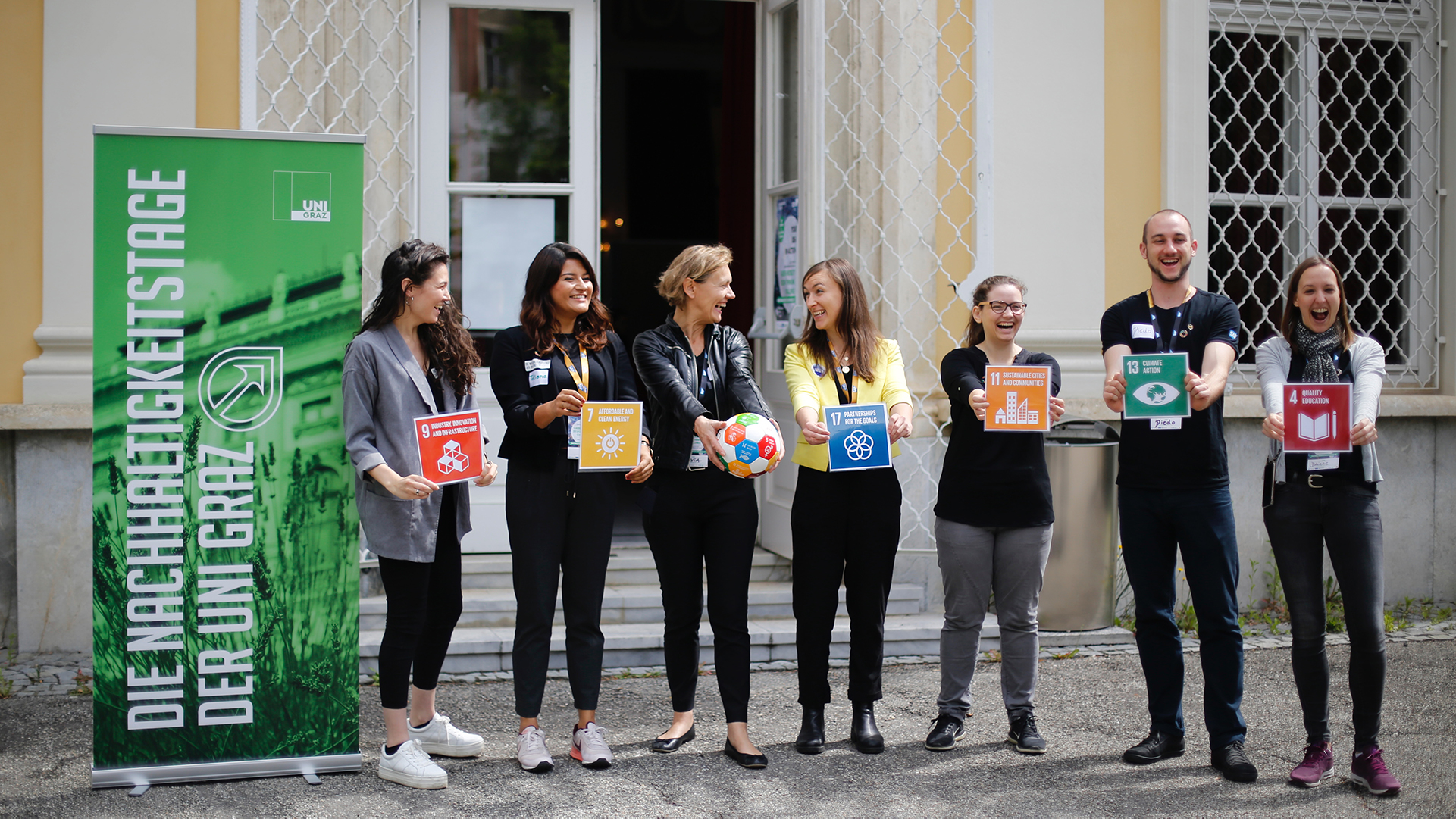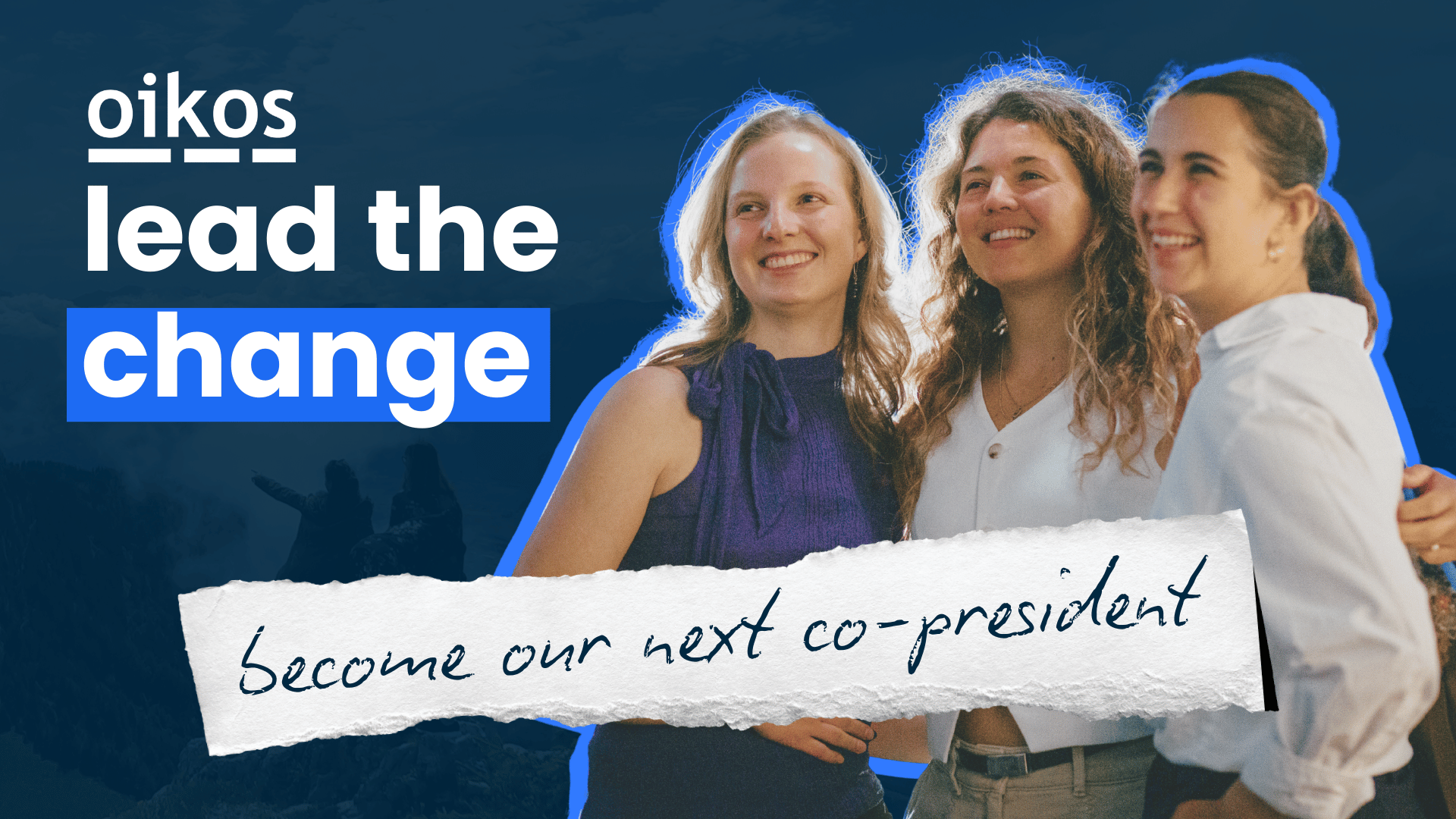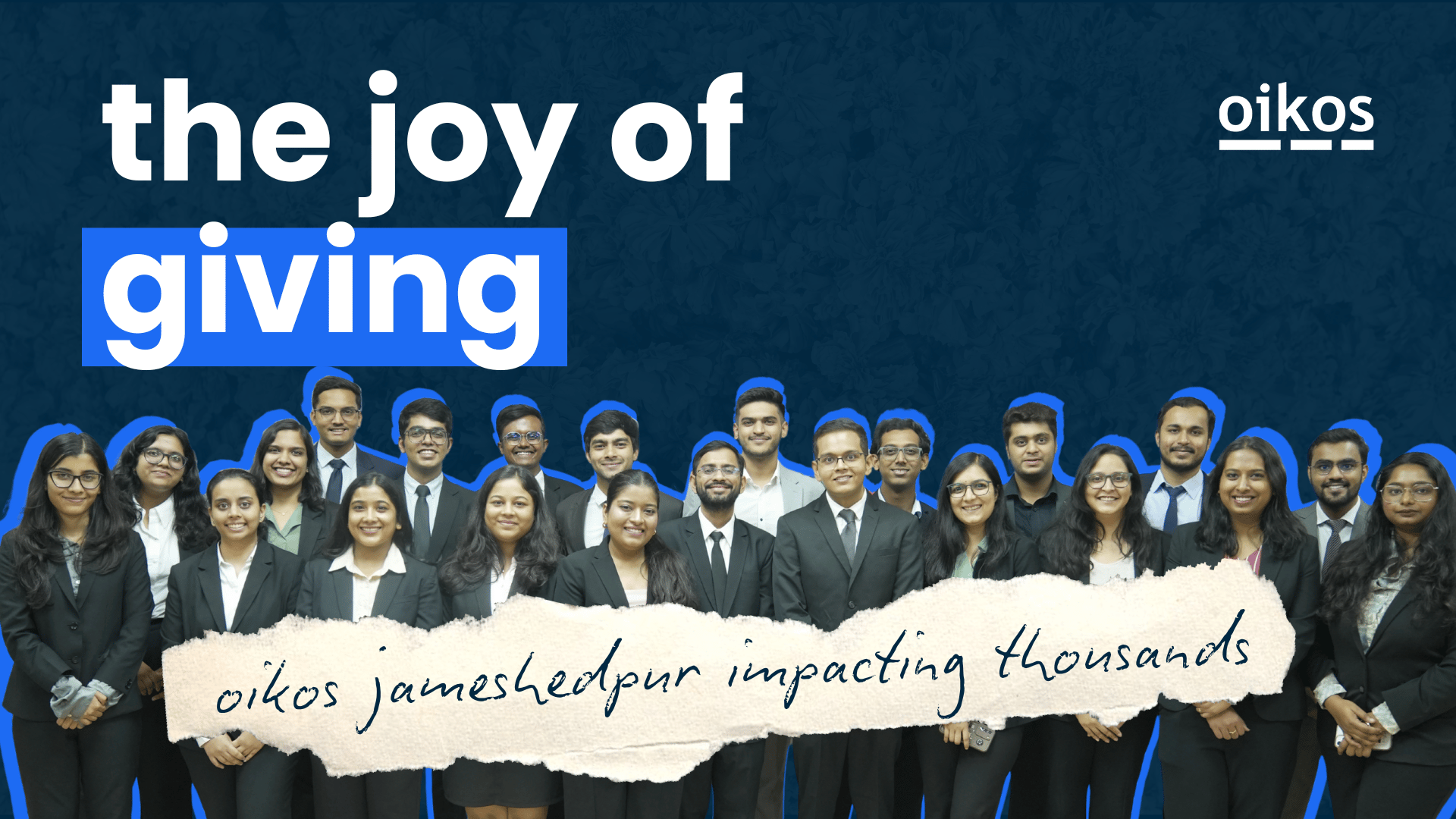
Sustainability Days is a long-running annual project organized at the University of Graz by students in cooperation with oikos Graz and other organizations since 2016. This year it made it into the finals of the International Green Gown Awards, gaining recognition as a highly commended project. Starting off as an initiative by a group of students, over time gaining university’s support it grew into a significant project shaping the university into a recognized pioneer in sustainability. The Awards recognize exceptional sustainability initiatives being undertaken by universities and colleges all over the world.
The Sustainability Days
The Sustainability Days of the University of Graz (Austria) is an event organized by students that takes place once a year to create awareness among other students, employees and university stakeholders on sustainability topics.
This year’s topic is How “Greta” is our University?, with the focus on encouraging the university to become a carbon-neutral institution by 2040. The programme offers a large variety of activities including a panel debate, do-it-yourself workshops and bicycle repair for free. An additional highlight is the Sustainability Design Thinking Challenge (SDTC) organized by the University of Graz, oikos Graz and SAP/SAP next-gen. It is a 3-day co-innovation competition for students who are guided by professional SAP Design Thinking coaches. The interdisciplinary student teams develop sustainable ideas and solutions for practice-relevant questions. This year the SDTC was organized fully online.
Sustainability Days over the years
2016 – A group of proactive students decided to initiate a one-day event called Sustainability Day. They had some experience and a network due to their engagement at the local student union and the international student-led organization oikos. Financially they were supported by the student’s council.
2017 – Next year, the University of Graz itself came into play, supporting the group of engaged students and it came as no surprise that this initiative was of great advantage for both sides. The students were able to have better access to university services and infrastructure for the event. Further, they could now reach more students and other university stakeholders since they were acting on behalf of the university. What’s more, they had first-hand contacts to the rectorate and could express their wishes regarding sustainability goals on campus more accurately. Workshops, a panel discussion, research projects, bicycle repair, a fair with voluntary organizations and student initiatives presenting themselves took place in a single day.
2018 – The event was extended to a two-day program. Additionally, the program from 2017 was expanded by adding new events like: open-air clothes swapping party, a documentary evening, test-driving with electric automobiles, coffee time accompanied by politicians and a climate action theatre.
2019 – The Green Mobility Design Thinking Challenge was born – the highlight of the Sustainability Days today. This Challenge is a co-innovation competition organized by students for students. With the support of oikos Graz, five SAP Next-Gen Design Thinking coaches, 30 students from multiple disciplines worked in teams on a specific question raised by three companies who are called challenge-owners. Within three days, the interdisciplinary teams developed concepts and ideas offering a sustainable solution for the raised questions. In the end, the results were pitched in front of an audience and the jury, which then awarded prizes for the best solutions.
The fifth anniversary
This year marks the fifth anniversary of the Sustainability Days! The event is finally taking place in December under the topic How “Greta” is our University?.
The program offers a smaller variety of activities due to the circumstances of the Corona virus pandemic. The activities include an online panel debate with representatives from the Rectorate and the Vice Chairwoman of the student’s council. Also, popular guests from Fridays for Future and educational fields are invited for a lively discussion. Moreover, online Christmas DIY-workshops will be offered to the students by Easy2Nature, a students initiative. The popular bicycle repair booth had been offered in June. Unfortunately, planned events such as Science and Cinema, a poetry slam and theatre performances on sustainability topics, an art installation on wasted PET bottles and more had to be cancelled due to the current COVID-19 measures. Yet, this year’s highlight is the Sustainability Design Thinking Challenge. The concept is similar to what it was like last year, once again organized in collaboration with oikos Graz and SAP. Three main things have been updated. First, the slogan of this year’s challenge is smart.green.future. It focuses on how organizations can develop towards digitalization while putting a bigger emphasis on sustainability aspects. Second, the challenge is exclusively online, but we deliver vegan food to the participants during the 3 days. Third, we managed to offer the challenge as a lecture, giving the opportunity to students to receive 2 ECTS credits for participating.
Adapting to the pandemic
This year was full of challenges for the organizing team as we had to adapt to the new circumstances of COVID 19. Despite the challenges of organizing an event during the pandemic, we decided to not give up and tried to turn the risks into opportunities. Naturally, we regard the health of students and all participants of our event very seriously. Thus, we have ultimately decided that the only responsible way to do it is to shift our events to an entirely online mode.
Moreover, we decided to put more energy into new projects with a good feasibility and reach, such as submitting applications for two different awards and were invited as speakers at the EAUC Conference, a virtual global collaboration bringing together university and college students, academics, leaders and professionals to address the Climate and Ecological Emergency.
Last but not least, we keep strengthening the cooperation with our partners. In order to establish and promote this holistic programme and to engage as many people as possible in sustainability topics, partnerships with other local initiatives and university departments are essential to us. Even though we had to postpone some parts of the program, we keep our contacts.
Making an impact
It is a success that all kinds of people from different fields come together for the Sustainability Days of the University and in its associated competition, the SDTC. The Sustainability Days 2018 had a total of 820 visitors and around 900 visitors in 2019. For the challenge in 2019, we counted 30 students from different disciplines and universities, 3 partner enterprises and 5 design thinking coaches from SAP. Our general audience is represented by about 70% students with the additional 30% composed of academics, enterprise and institutional partners and citizens interested in sustainability topics. The benefits relate to a positive social outcome of raised awareness towards sustainability topics among the audience. Furthermore, a change to a more responsible performance by our university is induced and synergies emerge.
The unexpected outcome is that the Sustainability Days are bringing together a lot of different people from various departments, other existing smaller and bigger sustainability initiatives and different parties at the university. The power of all those groups combined is much greater than the total power achieved by each working separately towards the SDGs. Experiencing this power was one of the most unexpected and positive outcomes of all. After participating in the co-innovation competition, the SDTC, students started to rethink their lifestyles regarding sustainability issues and were very excited to continue working in interdisciplinary teams. Some stated in a feedback form after the event that they did not want to buy a car anymore but started to think about shared mobility, referring to last year’s topic of green mobility.
Recognition at the Green Gown Awards
We applied for the Green Gown Awards, which are supported by the UN Environment, and became finalists as a highly commended project in the category “Student Engagement”! It is an honour for our university, but also for us as the organizing team, to be recognized as a pioneer university for sustainable achievement of our students. We aim to encourage our academic environment, stakeholders and other universities to unfold their potential towards the SDG’s.

Future plans
Our biggest vision is to raise awareness among larger groups of students and academics on sustainability topics. In other words, we want to empower future leaders to act in line with the directions given by the Sustainable Development Goals (SDGs). This has been a learning process from the very first moment.
We also keep creating synergies with ongoing initiatives and projects. Generally spoken, it does not necessarily matter if they have anything to do with sustainability as long as they engage themselves to shift towards a greening society.
We also work together towards the goal of becoming a carbon-neutral institution. We experienced that our responsible procurement practices have been an incentive and a source of inspiration for other departments of the university.
And last but not least, we aspire to motivate other students and oikos chapters to ask their own universities to support such student initiatives. Universities should empower future leaders and be a role model for a more participatory campus life!
This amazing article was written by Carolina Rovira from oikos Graz. A big thank you to her for sharing insights to the oikos Community about a project that was inter alia initiated by oikos Graz and is now fully supported by the University of Graz!















